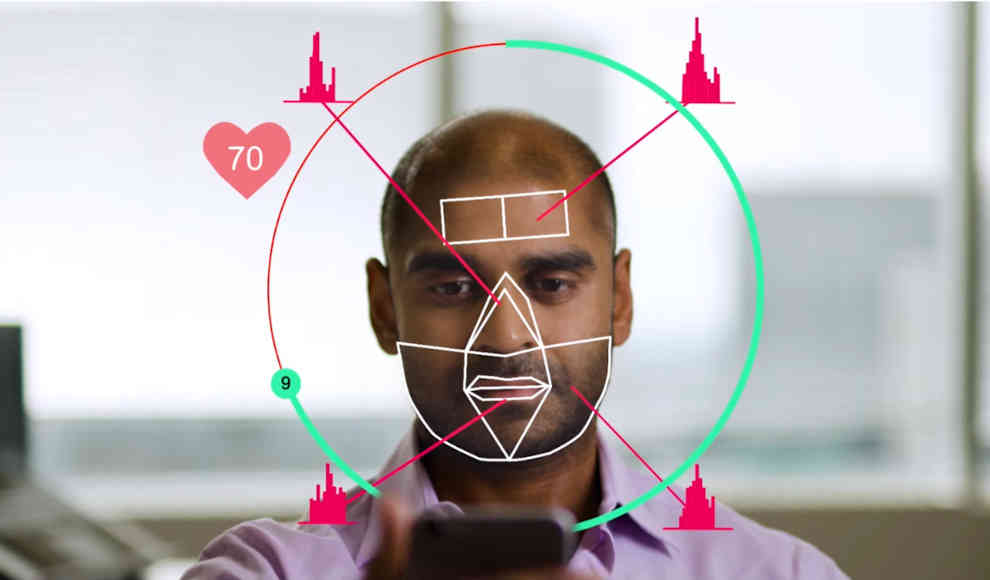A new method of measuring blood pressure, pulse, and stress levels using smartphone videos has been developed by scientists at the University of Toronto. The process involves taking a two-minute video using the phone’s selfie camera, which is then analyzed by an app to determine the individual’s health data. The method, called transdermal optical imaging, has been found to be accurate in 95-96% of cases, according to a study published in the journal Circulation: Cardiovascular Imaging. However, the technology is currently limited to light-skinned individuals with average blood values, and further development is needed before it can be used in clinical practice.
The technology works by analyzing the amount of blood flowing beneath the skin of the face using the camera sensor. The reflected red light shows the veins and blood flow, allowing researchers to determine changes in blood flow and make inferences about blood pressure and other health data. The app, called Anura, is currently available for iOS and Android smartphones and can measure stress levels and pulse using a 30-second video. A version that can also measure blood pressure is in development and will be available soon, but only in China.
The app’s developer, Professor Kang Lee, has founded a company called Nuralogix to offer the app for free. The company assures users that videos are deleted after analysis, and the data is anonymized and stored in the cloud to prevent any connection to individuals’ names. However, further development is needed before the technology can replace existing methods in clinical practice, as it currently only works accurately on individuals with normal or slightly elevated blood pressure and light skin. The app’s future capabilities include measuring blood sugar, cholesterol, and hemoglobin levels.










